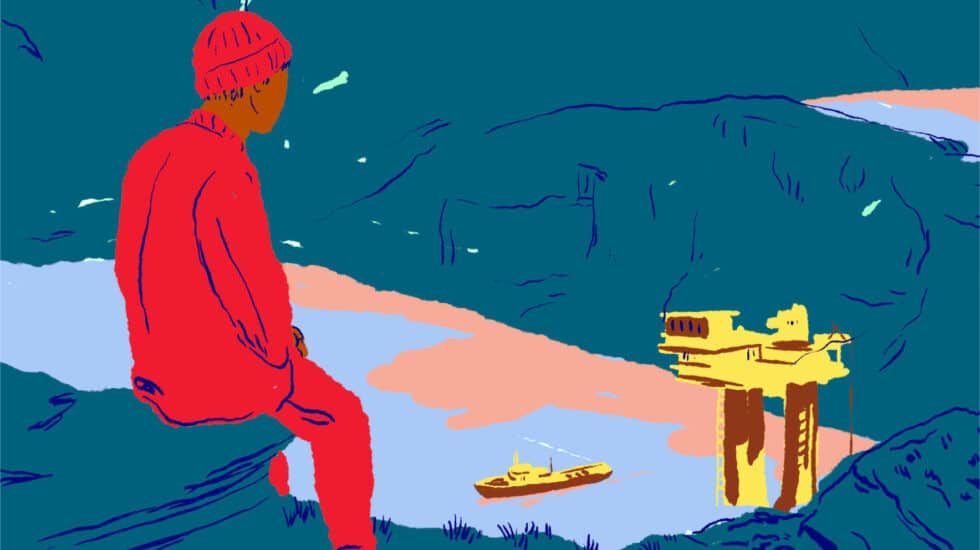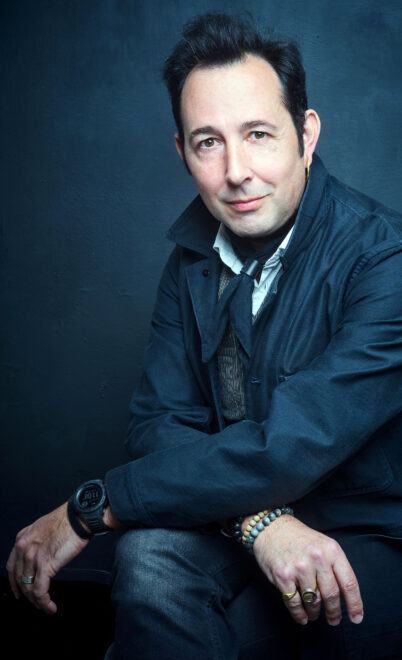

Climax cover (DNA)
French writer Thomas B. Reverdy after his chronicle novel about the years of Taherismo Winter of Discontent come back from climax (AdN) a story set in Norway where the world as we know it is starting to fall apart. Global warming is showing signs of its irreversibility in a small Norwegian town that lives off fishing and oil companies. There, some childhood friends meet again just as things start to change.
Thomas B. Reverdy brings the beginning of the end of the world to the epicenter of climate change, the Arctic, a place that is slowly disappearing before our eyes with less and less extensive ice and species like the polar bear. disappear. “The Arctic and sea ice are at the heart of our understanding of climate change,” says the writer.
Q: Why Norway?
BUT: Because Norway lives and maintains its standard of living thanks to a sovereign wealth fund fueled by oil production. At the same time, Norwegians are kind and close to nature people who have included the right to hike in their constitution.
It embodies our current schizophrenic feelings, we want to enjoy our lifestyle, our technology and everything that makes our modern comfort and at the same time, it encourages us and encourages us to worry about climate change and the destruction of our ecosystems.
Q: Have the Arctic and sea ice become a symbol of climate change?
BUT: The Arctic and sea ice are at the heart of our understanding of climate change. Back in the 1970s, it was in the ice of the Arctic that we found evidence that undoubtedly links climate change with the presence of CO2 in the atmosphere, and hence with its pollution.
In addition, the Arctic and sea ice is the environment in which the effects of climate change can best be seen with one’s own eyes year after year: God, it’s melting!
I should add that for a novelist like myself, the Arctic is an opportunity to understand how this happens. It’s a pretty simple environment. There are a limited number of species, and each of them is very specialized, because it is a difficult task to survive there. Once climate change threatens the smallest, such as the microscopic zooplankton itself, the impact is felt throughout the ecosystem.

Q: There is a business world of fossil fuels in your novel. What role does he play in climax?
BUT: When I wrote and documented climaxI expected that my enemy was probably an ecoskeptic. But I found more villainous people: eco-cynical. Someone who understands change very well and whose reaction is simple: “Well, the new world brings new opportunities. Does he melt? Let’s drill! Oil companies estimate that 30% of the oil and gas on Earth is hidden somewhere under the sea ice. The fossil economy is not going to disappear, these people are objectively interested in global warming. They will do everything possible to make trouble come. They are truly the supervillains of our time.
Q: Does the combination of entertainment with participation have any effect?
BUT: Name it and it exists. Literature always has an effect. It `s Magic.
I don’t do this to demoralize people, but rather to inspire them. Inspire your conscience, your struggle. That’s what art does. We will need art, beauty, imagination if we are to face disaster.
Q: Are we experiencing the end of the world as we know it?
BUT: All the facts that I use to build the novel are already real. The collapse of icebergs in Antarctica or Canada, the rise of a wave worthy of a tsunami, the explosion of an oil producing station in the Gulf of Mexico, etc. If I can put them together and make a story out of them, then it is already there, in the air, about to arrive. Sea ice is melting, even in the Alps glaciers are melting, water is rising, and hurricanes and giant fires, earthquakes and catastrophes are becoming more and more terrible. Extreme events are becoming more frequent. Both climate and financial problems use the same mathematics to describe them. We have spent several decades in the world of mathematics, numbers and machines. Of course, the world of my childhood no longer exists.
The question is not whether we can avoid it, but what we do about it. What will we do with the poor who will not survive climate change where they live? What new solidarity are we going to build between nations to deal with this planetary challenge? We don’t need numbers. We need inspiration, imagination, we need people, their will and their desires. This is the meaning of my novel.
Question: Are you optimistic or pessimistic about our future?
BUT: The point is that you cannot know the future. Perhaps being pessimistic about the present is a good way to be optimistic about the future. Sure, we will. This is our future. Not that we had a choice.
Source: El Independiente